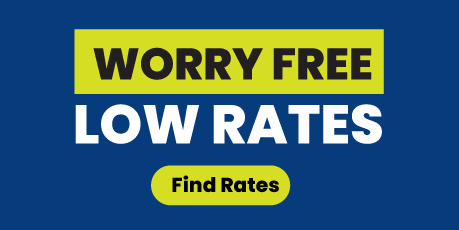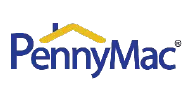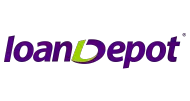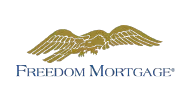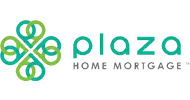VA Loan Programs


What are the VA Loan Program available to Veterans?
The Department of Veteran's Affairs offers a variety of VA Mortgage Loan Programs that are available to Service members, Veterans and eligible surviving spouses to become homeowners. The VA is a government agency whose mission is to serve our military members by providing a mortgage loan guaranty benefit allowing them to become homeowners.
There are numerous programs with the VA Loans. We are going to explain what a VA mortgage is and the different types available. We will provide the requirements to be eligible for a VA mortgage, the pros and cons, and how to apply.
Veterans, active-duty service members, and their surviving spouses may benefit from the VA loan program offered by the Department of Veteran's Affairs.
These VA loans provide access to affordable mortgages with no down payment required and no need for costly mortgage insurance.
With these incredible benefits available to those who are eligible for it, a VA loan is an excellent option for securing appropriate housing at an accessible price.
Veterans, active-duty service members, and their surviving spouses may benefit from the VA loan programs offering no required Private Mortgage Insurance.
VA Loan borrowers will learn about the full VA loan entitlements, VA loan limit guidelines, closing costs, VA loan benefits, VA eligibility, VA certificate of eligibility (COE) and the VA funding fee.
In this article, borrowers will get a comprehensive overview of the various VA loans. The VA loans are provided by banks, credit unions or mortgage providers and backed by the federal government - not through the Department of Veterans Affairs itself.
These VA programs bring less risk for private lenders and offer lower upfront costs for borrowers due to their federal backing.
Government-backed loans provide an assurance to VA lenders that they will be able to recover their losses in the event of a homeowner default and foreclosure. As such, borrowers can access these programs under more favorable terms than conventional mortgage or FHA loan options.
VA loans are a great source of financial aid for veterans, service members, and their surviving spouses offering more than just an easier qualification process compared to other loan programs.
With a VA loan, you can finance home upgrades or cash out the equity in your home. Additionally, debt-to-income (DTI) ratio calculations take into account different factors when it comes to VA loans.
This may enable the borrower to qualify for larger homes, even if your Debt to Income (DTI) ratio is high. The VA loans will not require a down payment.
Veterans should take advantage of the benefits offered by the various VA mortgages. These mortgages do not require a down payment nor credit score requirements, except what is set by the private lender. Although there are various types of VA loans programs with different advantages and drawbacks, borrowers may easily apply for this type of VA home program through any qualified private lender that meets your needs.
A borrower will need to understand they will need to meet the lender’s VA credit and income requirements. The minimums are set by the individual lenders and not the VA.
A borrower will need to understand VA loan eligibility, the full VA loan type and benefit, loan amount, what the full VA loan benefits and entitlement, the funding fee, lenders offer VA loans, private mortgage lender, the monthly payments, closing costs, down payment, primary residence, among other terms when applying for a VA loan.
What are VA Loans minimum property requirements?
The VA loan program has a form of home requirements known as the Minimum Property Requirements (MPRs) to ensure the property is a safe and sound investment for the homebuyer. The VA Minimum Property Requirements are different than the traditional mortgage loan program's requirements.
Prior to approval for a VA Loan the property must meet the VA minimum requirements. The lender will order a VA appraisal from a VA approved appraiser. They will inspect the property for the soundness of the build, safety concerns and general inspections to ensure the home meets the VA minimum requirements. They will submit their report and the lender will determine the loan amount in which they will fund.
The Veterans Administration requires an additional home inspection report called (WDO) Wood Destroying Organism Report that will detect any festination of termites, carpenter ants. The report will also identify any exterior areas that have wet wood, wood root and or waterproofing issues.
What are the Major Requirements for a VA Mortgage?
The major VA requirement for being approved for a VA mortgage is to obtain a Certificate of Eligibility, (COE). The borrower must have been on active-duty service for at least 90 days, with at least 30 days must be consecutive. The borrower’s DD214 must show 32 USC sections 316, 502, 503, 504, or 505 activations.
Active-duty service members may qualify for a VA mortgage if they have served in the US military for at least 180 days during peacetime or 90 days wartime. In some cases, the borrower may need to provide the VA mortgage lender first with a Leave and Earnings statement, this a term for a military paycheck.
If the borrower is a veteran, they will need to provide a copy of your discharge papers. If they are on active duty, they will need a signed statement of service signed by their commander, personnel officer, or adjutant.
A member of the National Guard will be eligible is they have six (6), creditable years with the National Guard. They must be honorable discharged or placed on the retirement list.
The property the borrower wants to purchase must be a primary resident. The property may not be a vacation or investment.
The VA has minimum property requirements. A VA approved appraiser will need to inspect to make sure the property meets the VA requirements and the current government issued guidelines.
The VA purchase loans which are non-conforming loans and do not have to meet the purchasing standards of traditional Freddie Mac and Fannie Mae purchase standards for conforming loans.
What are the types of VA Loans?
It's essential for borrowers to compare the features of each distinct VA mortgage loan before deciding which one is right for them.
We are going to access some of the potential for VA loan eligibility and program choices below so that a borrower can make an informed decision about what works best for their individual needs.
There are 4 different types of VA Loan Programs:
· Native American Direct Loan (NADL) Program
· VA-Backed Purchase Loan
· VA Cash Out Refinance Loan
· VA Interest Rate Reduction Refinance Loan (IRRRL)
What is the Native American Direct Loan (NADL) Program?
The Native American Veteran Direct Loan (NADL) program began in 1992. Eligible Native American Veterans can use the program to finance the construction, purchase or improvement of a home on Federal trust land.
What is a VA-Backed Purchase Loan?
A VA Purchase Loan is backed by the federal government. Most Private Mortgage Lenders offer competitive interest rates on VA-backed purchase loans. This can help a borrower buy, build, or improve a home, especially if they do not want to make a down payment.
What is a VA Cash Out Refinance Loan?
A VA-backed cash-out refinance loan allows the borrower to refinance loans replace their current mortgage loan with a new one under different terms. If the borrower would like to want to take cash out of their home equity or refinance a non-VA loan into a VA-backed loan.
What is an Interest Rate Reduction Refinance Loan (IRRRL)?
The U.S. Department of Veterans Affairs' (VA) Interest Rate Reduction Refinance Loan (IRRRL) generally lowers the interest rate by refinancing an existing VA loan. By obtaining the mortgage payments a lower interest rate, the monthly mortgage payment should decrease.
What are some of the things a borrower should consider about the different types of VA Mortgage Loan Programs?
When beginning the purchase or refinance process, a borrower must begin by researching which VA program will most benefit their household. Don't forget to shop around and find a lender who can offer competitive rates as well as an understanding of all types of VA loans.
The VA borrower should make sure they will be able to afford the monthly mortgage payments. Even with no down payment this will more than likely be the VA borrower's largest monthly payment.
The VA borrower should make sure they understand the VA home loan benefit, the down payment rules, what is VA loan limit, VA loan requirements and what is the best va loan type description and of the VA loan type description for them make a decision.
What Are the VA Loan Limits?
VA loan limits are not based on which type of VA loan a borrower selects. Rather they're determined by how much mortgage that any given individual lender is willing to extend. VA loan limits may be impacted by your income, credit score, DTI ratio and other factors.
Eligible Veterans, service members, and survivors with full entitlement no longer have limits on VA loans over $144,000. This means the borrower will not have to pay a down payment. The VA guarantees to the borrower’s lender that if they default on a loan that’s over $144,000, the VA will pay them up to 25% of the loan amount.
The borrower will have full entitlement if they meet any of these requirements.
The borrower has never used their VA loan benefit.
The borrower has paid a previous VA loan in full and sold the property (in this case, they would have their full entitlement restored)
The borrower has used their home loan benefit but had a foreclosure or compromise claim (also called a short sale) and repaid back the loan in full.
VA Loans Important Information:
The borrower may have heard the terms "additional entitlement," "bonus entitlement," or "tier 2 entitlement" when discussing VA-backed loans over $144,000. However, they do not need to use them when applying for a loan - just ignore these terms as they are only used in conversations between lenders.
When does the VA Require a VA Funding Fee?
On conventional mortgage loans, private mortgage insurance is usually paid when a borrower pays less than a 20% down payment. This serves as an assurance for lenders in case of default on your loan. With VA loans, however, no such PMI is needed - instead it comes with a VA funding fee that the federal government sets between 1.25%-3.3%.
A borrower may choose to pay this fee upfront or include it into their total loan amount depending on the size of their down payment.
Typically, the amount of a borrower’s VA funding fee is based on their particular loan and borrower information. Additionally, if they are a veteran with a disability from service-related activities, then they may be eligible to receive an exemption, this exemption allows the borrower to not pay this same funding fee amount.
If any of these apply to the borrower or if have additional questions regarding eligibility for the waiver program, please don't hesitate to reach out directly to the Veterans Administration.
If you have any questions about the VA loan process, a borrower can always contact their regional VA loan center by calling 877-827-3702 from 8:00 AM to 6:00 PM EST, Monday through Friday.
What are the downfalls of a VA loan?
-
The VA homeowner may end up with less equity than with a conventional mortgage.
-
VA Mortgage Loans may not be used for second, vacation or investment properties.
-
Must be borrowers’ primary residence.
-
The VA funding fee is higher, making conventional and FHA loans an option to research.
-
Some sellers may be resistant to VA financing.
-
Not all private lenders offer VA loans as they do not wish to do the VA loan work. The borrower must qualify for a VA loan requirement,
-
The VA borrower may want to check the VA loan estimates and compared to conventional loans, even with mortgage insurance. they may also want to compare FHA loans, which may require a down payment and possibly require mortgage insurance, with a VA Loan.
Conclusion on VA Loan Programs:
The VA home loan program allows VA borrowers to purchase a home using their VA loan entitlement, no down payment, lower VA mortgage rates, VA closing costs, reasonable debt to income ratio, and other VA benefits.
They may be able to choose a VA approved lender, such as a private mortgage company, credit union, and banks to fund their VA mortgage loans.
They will need their certificate of eligibility, meet loan limits, meet VA loan eligibility important documentation and they will be on their way to primary residence being backed by a VA home loan. This will allow the borrower to take advantage of their VA loan benefit.
There are different types of VA home loan programs, and each one is suited towards a certain type of VA home loan benefit and loans borrower.
Depending on the goals of the borrower, buying, building, renovating, refinancing, etc. – and their financial situation, they may apply for the type of VA loan that best meets their needs.
A borrower who wishes to purchase a family home, condo, or townhouse and the meet the qualifications of a VA Mortgage loan, may have more favorable terms than conventional loans or FHA mortgage loans.
A borrower who wishes to renovate their property, cash out on their equity, refinance their original mortgage, may also have more favorable terms than a conventional loan or FHA mortgage loans.
VA home loans offer no or lower closing costs, no mortgage insurance reasonable monthly payment,
Remember that in some instances, a conventional loan might offer more favorable terms, so a borrower should shop around and compare available loan options.
If the borrower has any questions, they may reach out to the Department of Veterans Affairs and speak with an Officer who is trained to administer Veterans' benefits.
A borrower may contact their regional VA loan center by calling 877-827-3702 from 8:00 AM to 6:00 PM EST, Monday through Friday.
Please read through this information and if you have questions about a VA loan we are here to assist.
Our expert mortgage officers are available to assist with any questions you may have.
Please call us at 1-866-713-9292 or apply online.

